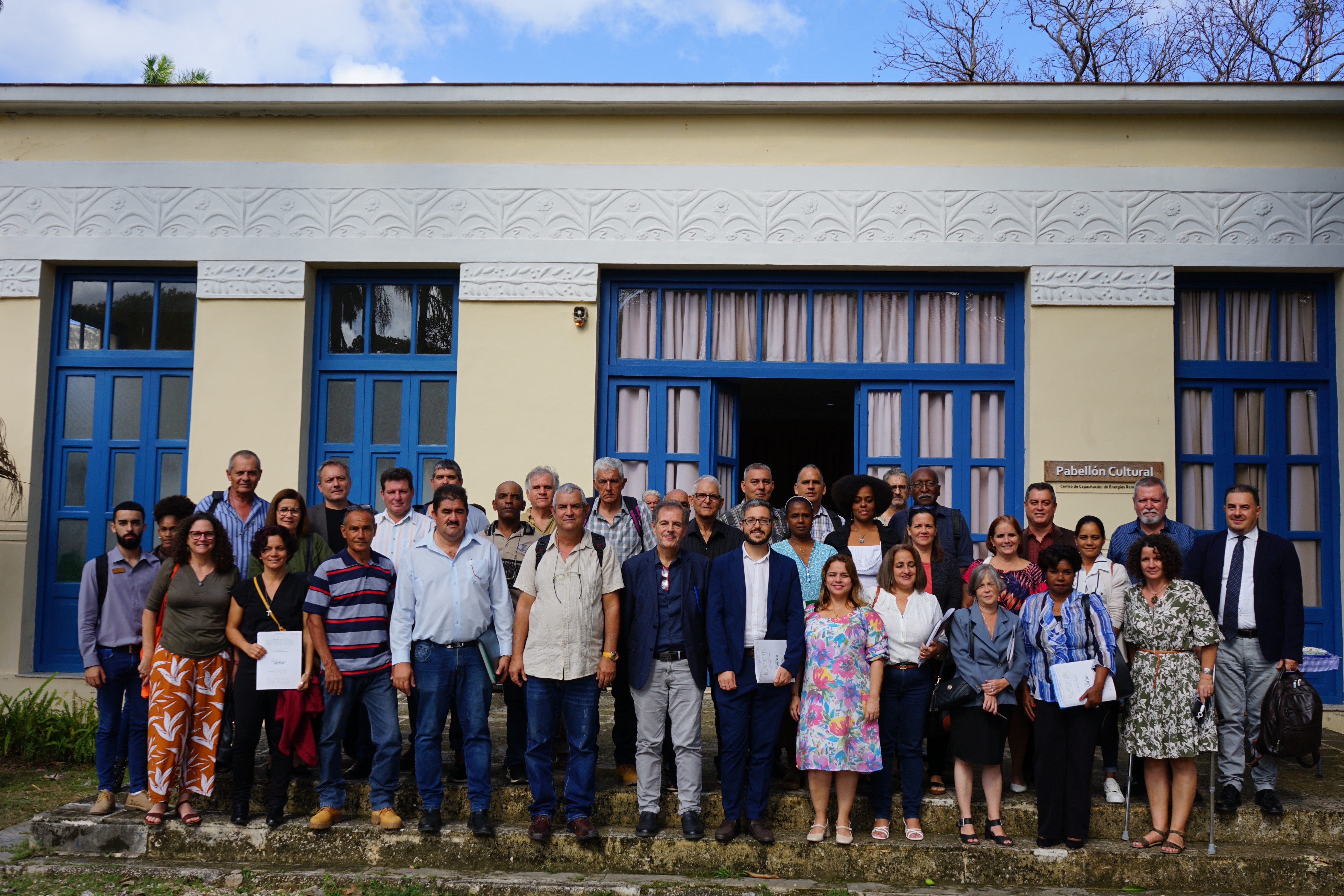The Green Line Project, funded by the Italian Agency for Development Cooperation (AICS), is a new initiative promoted by the AICS office in Havana in collaboration with the Italian NGOs ARCS and CISP.
The initiative is structured around two closely interconnected components:
- Nutritional Component: Led by the Center for Research on Protein Plants (CIPB) and supported by AICS Havana, this component aims to ensure food security for vulnerable communities by providing high-nutritional-value food and developing the supply chain for Moringa and other protein plants in the Pinar del Río and Havana regions.
- Renewable Energy Component: Developed in collaboration with researchers from INAF, the NGO ARCS Arci Culture Solidali, MINAG, GAF, INIFAT, the Italian NGO CISP, and the University of Pinar del Río, this component focuses on creating resilient, sustainable, and self-sufficient communities through the use of renewable energy sources.
The Green Line Project is expected to benefit over 3,000 people, including workers from UBP “El Pitirre”, Los Palacios, and Macurije Agroforestry Company.
“Green Line reaffirms AICS and its partners’ continued commitment to improving the quality of life for local communities through sustainable and resilient practices. This project not only offers practical solutions for food and energy security but also strengthens our alliance with cooperation actors—both Cuban and Italian—to build a more resilient and self-sufficient future,” said Antonio Festa, Director of the AICS Havana office.
The project has a total budget of €3,000,000 (€1,330,000 for nutrition and €1,670,000 for energy) and will run for 36 months. The initiative will benefit communities in Guane, Mantua, and Los Palacios (Pinar del Río) and La Lisa and Playa (Havana).
“Green Line” represents a significant step forward in strengthening community resilience and sustainability. With its innovative model of energy communities and the use of Moringa and other beneficial plants, the project is designed as a scalable intervention that could be replicated in other regions of the country.
